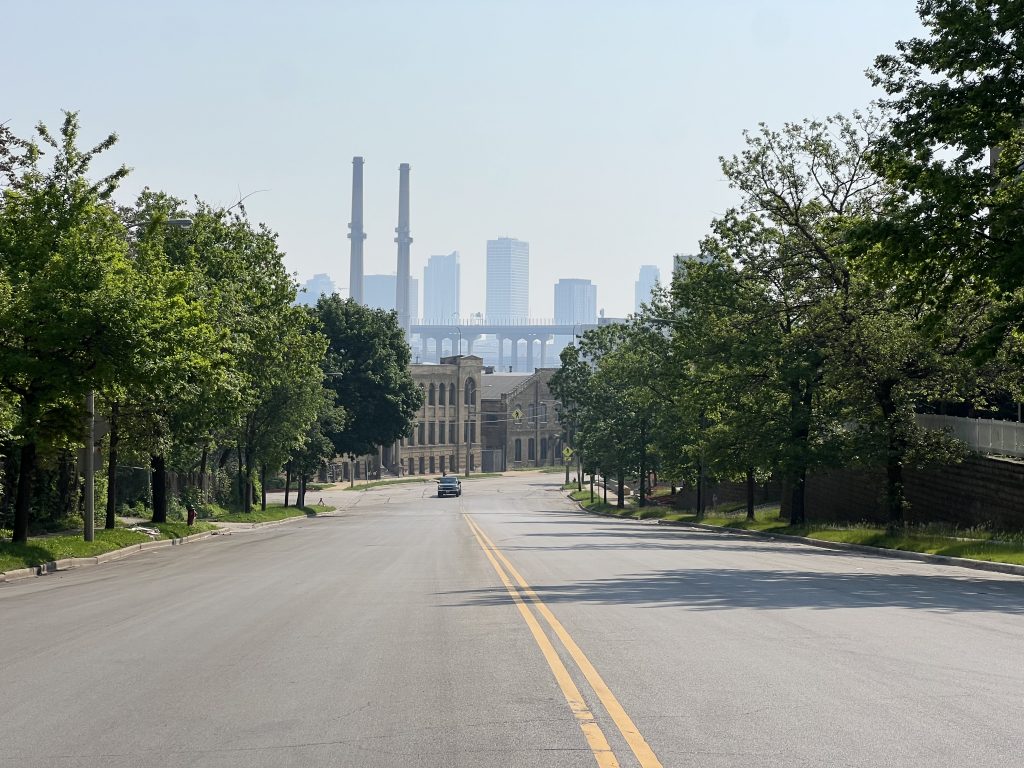Wildfire Smoke Forces Wisconsin Summer Camps Indoors
Children are particularly vulnerable to wildfire smoke, health experts say.
Day camp owner Ethan Staley is used to having to move campers indoors when a summer storm blows in.
Pulling kids away from basketball or soccer for bracelet making or crafts is the norm on rainy days. But this summer has added a new wrinkle to the contingency plans.
Days of warnings about unhealthy air quality caused by drifting smoke from Canadian wildfires has had Staley’s camps, and other outdoor recreation programs for kids in Wisconsin, adapting programs to protect children from the effects of particulate pollution.
“If there is an alert issued, we’ll have the kids inside,” said Staley, the owner and director of Madison’s Swim&Gym Summer Camp. “If it says it’s unhealthy for certain populations, we monitor our kids that have asthma or other breathing issues and bring them inside as needed.”
His camp runs outdoor activities like soccer for dozens of children ages 5 to 12. When the smoke rolled in last week, Staley said his team monitored the air quality and, when needed, pivoted to the indoor protocols they use during rainy or stormy weather.
“In the mornings, we’ll do crafts. We’ll have a snack. We’ll do various indoor/rainy day games,” Staley said. “It’s not horrible to adapt, but it definitely throws everybody off their game a little bit when we have to do it on the fly.”
Making the call to move children indoors can be difficult when the air quality conditions change throughout the day and monitoring websites show different readings, he added.
“It’s more art than it is science,” Staley said.
Wildfires are becoming extreme and frequent, and particles from the smoke can be hazardous to people’s lungs and bodies, with children being particularly vulnerable, according to the World Health Organization.
All children, and especially those with respiratory conditions like asthma, are considered “sensitive” to wildfire smoke because of their developing lungs and tendency to be active, according to the U.S. Environmental Protection Agency.
The American Camp Association provides an Air Quality Index, or AQI, chart and suggests leaders adjust operations for all campers once the levels are above 150.
“Camps should include air quality plans in their summer protocols and procedures,” their website reads. “These plans should be clear, communicated to camp families, and include indoor spaces with the capability to use ventilation fans and close windows.”
Madison School & Community Recreation, or MSCR, runs camps for elementary through high school aged children.
“Most of our summer camps also have an indoor location that they can use as backup,” said Operations Manager Laura Whitmore. “We look at the AQI readings, and when it’s in red or the number is 151, that’s when we really start to evaluate each of the programs.”
They use the Airnow.gov site to make the call. The federal site is run in collaboration with local agencies along with the EPA, National Oceanic and Atmospheric Administration, National Park Service, NASA, and the Centers for Disease Control and Prevention.
Nearly all MSCR camps were able to proceed during poor air quality days last week, she said.
But for one camp, an overnight visit at Devil’s Lake State Park was cancelled. Campers were scheduled to leave Thursday, July 31, when the state had some of the worst air quality in the nation.
“We didn’t do the overnight, but on Friday, the air had cleared enough,” Whitmore said. “And we did take that camp to Devil’s Lake so they could spend the day there.”
Advice from a childhood asthma expert
Health experts said camp coordinators are wise to pivot when wildfire smoke blankets the region.
UW Health allergist Mark Moss treats children in the Madison area.
“Many of my patients have asthma, and they’ve all been commenting on how the poor air quality has affected their breathing,” Moss said.
He said particles from the smoke can penetrate deep into lungs and irritate patients’ airways.
Other symptoms include coughing, wheezing, sore throat, tiredness and irritability, he said
“All of this is related to more difficulty breathing and oxygenating,” Moss said.
For summer camps, where children are usually active outdoors, he recommends counselors monitor children for symptoms.
“Keeping track of children that have preexisting respiratory conditions is very important,” Moss said. “Making sure that quick relief inhalers are readily available for children to use.”
Plus, providing breaks indoors with air conditioning can help, he added.
People should also be aware of the toll that prolonged exposure to smoke can have, he said.
“There’s a lot of attention paid to air quality on the first day of an air alert,” Moss said. “But in many cases, it’s when it extends out many days in a row that people start having more and more inflammation.”
Days of wildfire smoke forced Wisconsin summer camps to pivot was originally published by Wisconsin Public Radio.
If you think stories like this are important, become a member of Urban Milwaukee and help support real, independent journalism. Plus you get some cool added benefits.





















